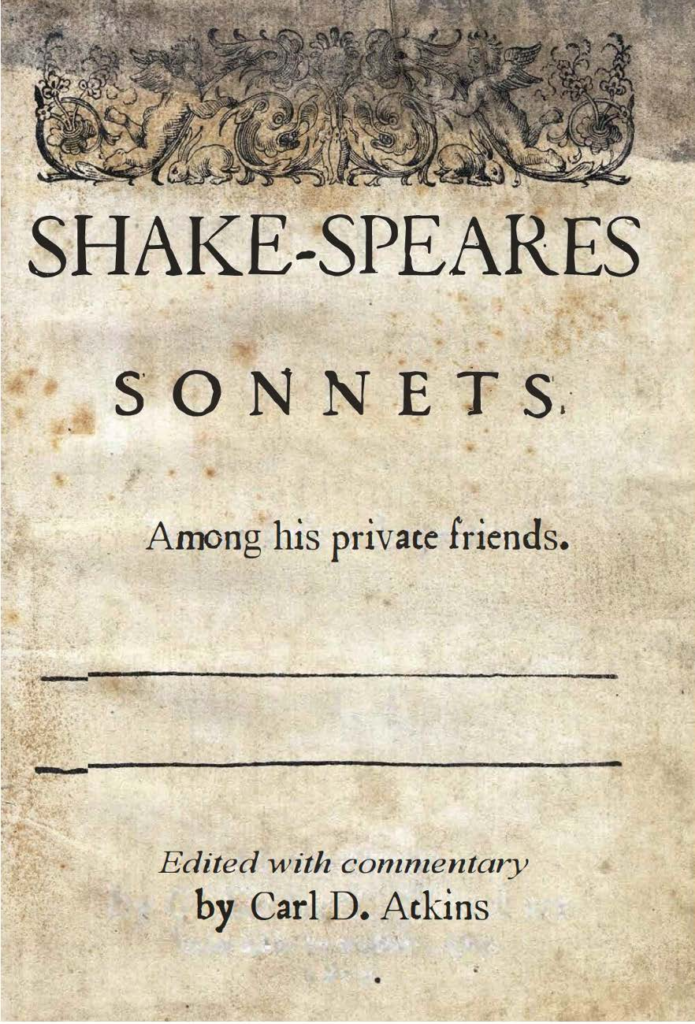
When I started this site way back in 2005 I really had no idea what I was doing. There was no Twitter, no Facebook, and basically you started a blog as a way to brain dump ideas you had on a topic in the hopes that other people might want to read them and engage in conversation. I don’t know that I knew more about Shakespeare than your average Joe, I just knew that I found the topic more interesting and wanted to talk about it more than my friends and family did. So I started a blog to talk about Shakespeare.
Then a funny thing happened. People who actually did know about the subject – a lot, as it turns out – joined the conversation. One of my new friends was Dr. Carl Atkins, who sent me a copy of his book Shakespeare’s Sonnets : With 300 Years of Commentary. Looking back now I admit that I had no idea what I was doing and understood very little of it :), but it’s been a reference ever since, both when I pull it down from the shelf, and when Carl pops up in the comments on sonnet threads and quotes his research to answer our questions.
Among His Private Friends
Well Carl’s working on a new book and site now called Among His Private Friends which aim to put you the reader in the role of one of Shakespeare’s “private friends”, passing the sonnets around among yourselves and learning the story they tell from the inside. In the author’s own words, the goal of this one is not to be a definitive reference but rather a fun read, the way Shakespeare may have intended.
The site is still a work in progress. Hardcore sonnet fans who are always interested in a new angle, should definitely check it out and send Carl some feedback! His book is due out in October.

Thanks, Duane! I would definitely say that you know more than the average Joe about Shakespeare, and did at least as far back as 2007 when I first started reading this blog.
Here’s a Sonnet tidbit I learned as I was writing my new book–did you know that Christoper Marlowe published a translation of The Amores, the erotic poetry of the ancient Roman poet, Ovid, and that his translation may have influenced Shakespeare’s Dark Lady sonnets (#127-154)? The Amores are often called love poetry, but that is way too tame a description–they are very racy and some say they were the cause of Ovid’s banishment from Rome. Just for fun, I include Marlowe’s translation as an appendix in my new book. Hoping to get lots of comments from readers about my website!